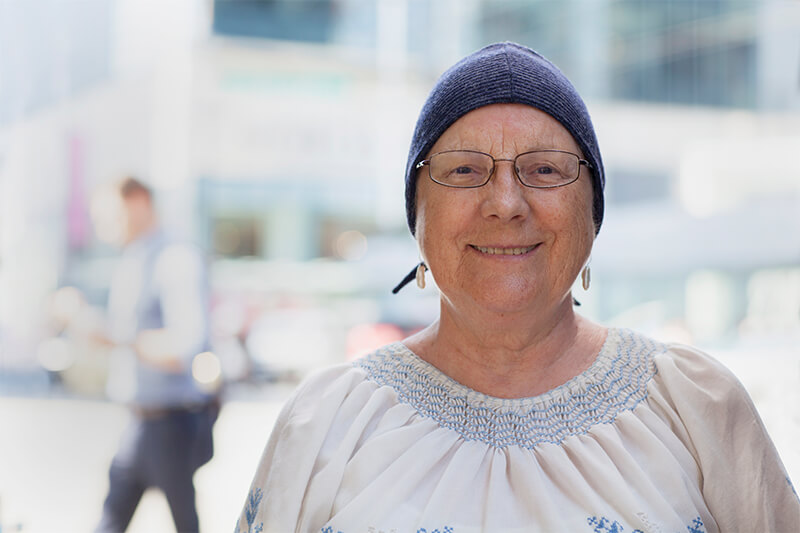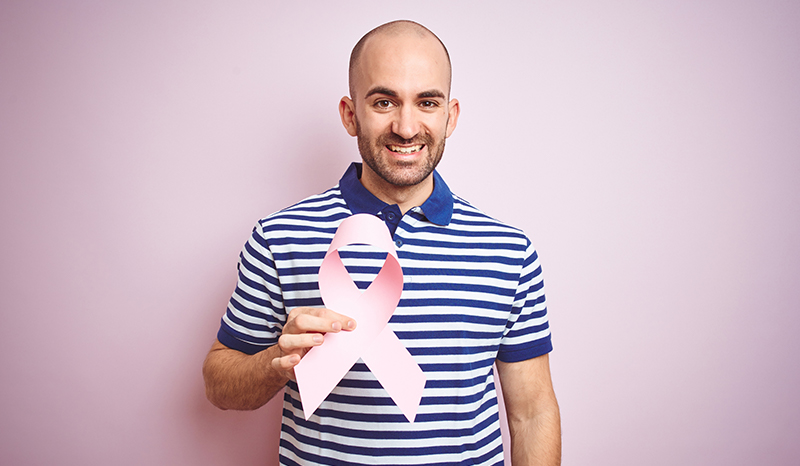Blog

Colorectal Cancer FAQs
Colorectal cancer is one of the leading causes of death in the United States. In fact, research shows that it is the third-leading cause of cancer-related death in the United States, will result in over 53,000 fatalities in 2020, and will appear in almost 150,000 patients over that same time frame. As with many health issues, knowledge of colorectal cancer means power: the power of early detection, treatment, and in some cases even prevention. You may worry that you or a loved one are at risk for developing colorectal cancer; or you may want to better understand certain aspects of this...

Survivorship: The Return to Work After a Cancer Diagnosis

Surviving, Thriving, & Empowering Others: Sherri’s Story
One breast cancer survivor’s story of turning a personal patient solution into a community solution By: Lori McNeill Sherri’s Story “I was shocked.” This, perhaps not surprisingly, was Sherri Romanoski’s response to being told back in 2000, at the age of 48, that she had breast cancer. “It hit me hard. I was full of fear,” said Sherri. Along with that fear can sometimes come a sense of powerlessness—how do I combat a disease I don’t fully understand?—and a lot of questions. What’s my cancer treatment plan? How long will it take? What can I do outside of the doctor’s appointments right...

Jackie’s Story
Jackie Dominguez had a very aggressive form of breast cancer, but with a multidisciplinary cancer care team who cared for her both physically and emotionally, she’s thriving with and beyond cancer. “The doctor was kind enough to not make me wait for the results. I’ll never forget that,” Jackie said. “But he also said that it wasn’t a death sentence. He just reassured me that I wasn’t going to die from this.” Jackie chose Arizona Oncology for treatment for her breast cancer. For most patients with breast cancer, surgery is the first step, and Jackie went to see an Arizona Oncology breast...

7 Practical Tips for Smokers to Reduce Lung Cancer Risk
Of all the cancers, lung cancer is claiming the most lives of men and women every year in the United States. If you are a smoker, then it likely concerns you that smokers have the greatest risk of developing lung cancer according to the CDC. The good news though is that even after a lifetime of smoking, you can substantially reduce your risk of getting lung cancer if you stop smoking now. This article explores practical tips that can help you to quit smoking and as a result, reduce your lung cancer risk. What Practical Steps Can Smokers Take to Reduce Their Lung Cancer Risk? Go...

12 Common Myths About Cancer
The internet contains many valuable sources of information about cancer. Unfortunately, it's also used to spread fear through myths and misconceptions that are repeated so often that many people believe they're true. These 12 statements about cancer are often relayed as fact. However, they are really myths. Myths About Cancer A cancer diagnosis means the end of life. Cutting out sugar will cure cancer. Cancer is caused by artificial sweeteners. A biopsy or surgery will cause cancer to spread. Cancer cures are being withheld. Cancer is a modern disease created by humans. Smartphones...

Surviving and Thriving During the Holiday Season
It’s the most wonderful time of the year—except when it isn’t. Facing the holidays with cancer presents unique challenges. It’s very common to experience a mixture of anticipation, excitement, and apprehension. The social workers at Arizona Oncology work with our patients to help them prepare for and cope with holiday-related pressures. Here are some of their tips. P Plan in Advance. In previous years you may have had the energy to pack the holiday season full of activities, traveling, and shopping. This year, however, doctor appointments, treatment side effects, and low energy may...

Advancements in Lung Cancer Treatment Bring Hope
November is Lung Cancer Awareness Month. Research has made great strides surrounding the diagnosis and treatment of this disease. Not counting non-melanoma skin cancers, lung cancer is the second most common cancer in both men and women. The American Cancer Society reports that the lifetime chance of developing lung cancer is 1 in 15 for men and 1 in 17 for women. For those who smoke, the risk is much higher. Low Dose CT Scan for Lung Cancer Screening Cancer is more treatable when caught early. Lung cancer often isn’t caught until it is well advanced, but low dose CT lung...

Men and Breast Cancer: What Every Man Needs to Know
While certain cancers such as brain tumors are viewed as equally affecting men and women alike, other cancers are seen as gender specific. For instance, prostate cancer is identified as a type of cancer that only affects men for the simple reason that women do not have prostates. Breast cancer is widely recognized as being a common type of cancer that affects women. However, what isn't talked about as much is the fact that breast cancer affects men as well. Let's take a closer look at the signs, symptoms, risk factors, screening, and treatment options available for male breast...

New Look – Same Compassionate, Leading-Edge Care
If you’ve visited our website or social media lately, you may have noticed a new logo and new look and feel! At Arizona Oncology, we are proud to move into the future with a reinvigorated purpose and a refreshed look, and we’d like to share with you what inspired it. You may recognize our new logo as a stylized version of the barrel cactus blossom. Viewed from above, this cactus provides a different perspective and promises a holistic approach to cancer care. The green petals represent our community of highly specialized care providers, researchers, and staff working together to deliver...


